Olive oil – the liquid gold of the ancients – was touted for its nutritional, medicinal, and cosmetic value. As a fuel, olive oil illuminated the home; as a food ingredient, it was a feast to the palate. Olive oil production is one of the world’s oldest industries which has not changed much over the millennia.
Numerous olive oil brochures of the Mediterranean coastal region proudly claim that the olive oil industry dates back to over 5,000 years. This is demonstrated by the discovery of a 5,000 year old olive oil earthenware vessel in Turkey. Shemen zayis, as mentioned in the Torah, is one of the seven special species of Eretz Yisroel. The Torah requires the purest of pure olive oil, shemen zayis zach, to light the Menorah. Olive oil was an integral part of the service in the Bais Hamikdash. The olive branch is considered a symbol of peace […]
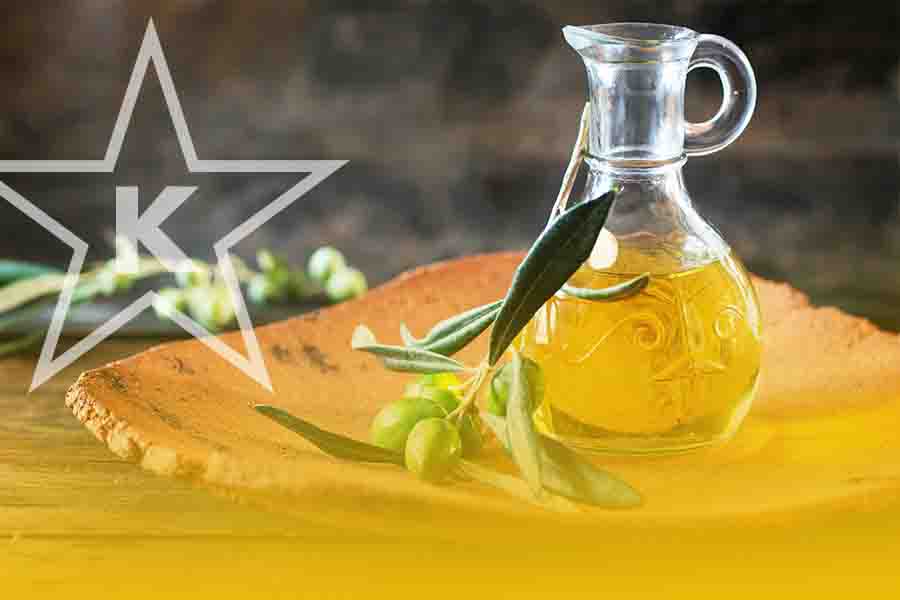
Bayamim Haheim Bazman Hazeh, Olive Oil: The Contemporary Industry of Antiquity

Ten Myths About STAR-K Sabbath Mode Ovens
Summer 2016
Myth #1: Every oven that has a Sabbath Mode is certified by STAR-K.
Fact: An oven that has a Sabbath Mode may or may not be certified by STAR-K. In fact, the same company may manufacture some ovens which have a STAR-K certified Sabbath Mode and other ovens with a Sabbath Mode which do not have any certification at all. One can verify an oven is STAR-K certified by consulting the oven’s manual, calling the STAR-K office (410-484-4110), or searching on the STAR-K website.
Reason: STAR-K does not own the copyright to the term “Sabbath Mode” and cannot prevent a company from using those words.
Myth #2: A person who does not intend to raise or lower the oven temperature may use any oven on Shabbos and Yom Tov, and there is no reason to use an oven which has a STAR-K Sabbath Mode.
Fact: When using an oven on Shabbos or […]
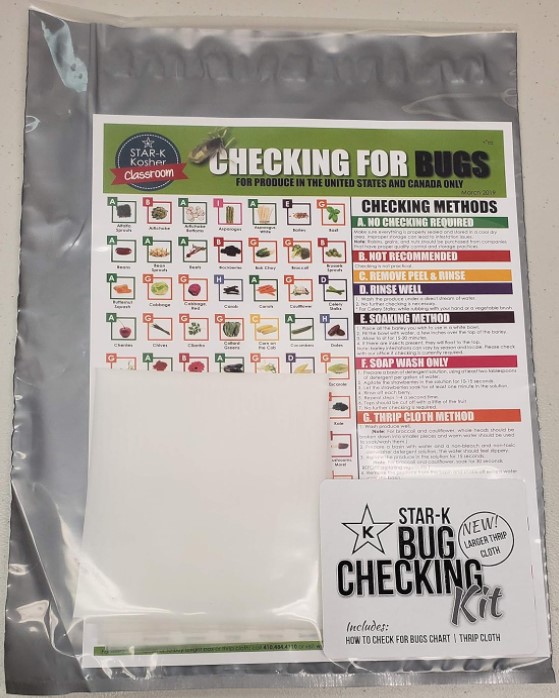
Bug Checking Kit
The STAR-K Bug Checking Kit includes everything you need to properly check your produce for insects.
The bug checking bundle includes:
17″x20″ reusable fine mesh thrip cloth
40×25 mm LED-illuminated folding jeweler’s loupe, battery operated with on/off switch
STAR-K’s full-color laminated bug checking chart
Price: $16
Purchase Options
Order directly from Judaica Spot.
Available locally at the Seforim Nook, 7006 Reisterstown Road, in the Colonial Village Shopping Center in Pikesville.
Information about purchasing STAR-K light boxes can be found here.
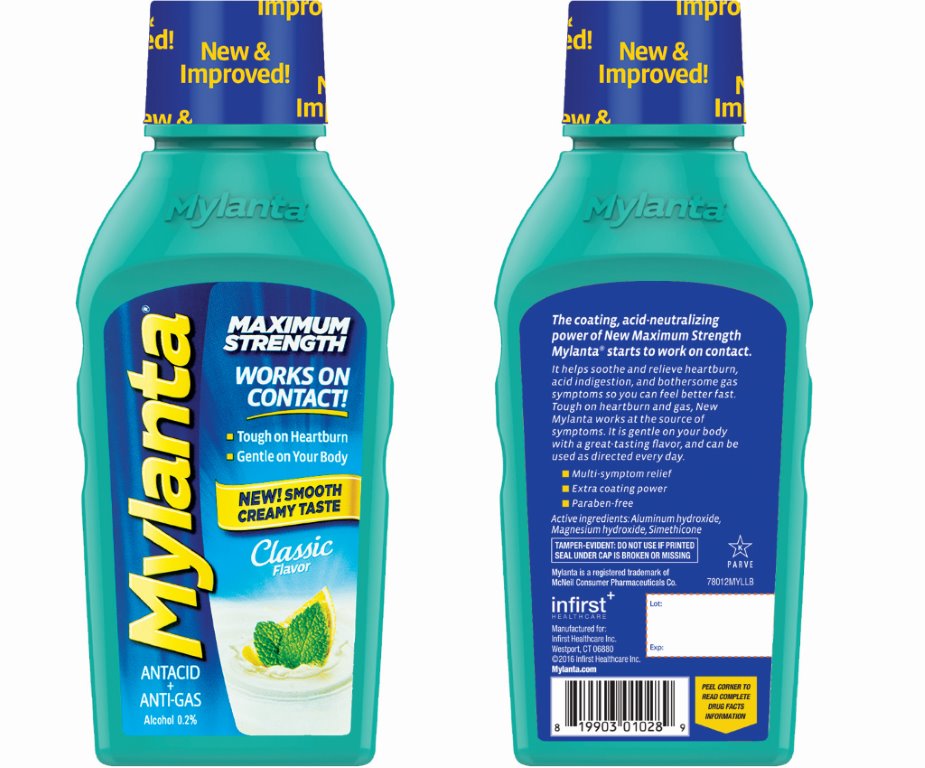
STAR-K Announces Certification of Mylanta Products
Over-the-counter (OTC) pharmaceutical products that have kosher certification are far and few between. That is why the announcement of the STAR-K certification of various Mylanta brand antacid and anti-gas products is monumental.
Kosher consumers can now find Mylanta Liquid Antacid & Anti-Gas (Maximum Strength Classic, Maximum Strength Vanilla Caramel, and Tonight Soothing Honey Chamomile) and Mylanta Gas Minis (Assorted Fruit, Cherry, and Mint Tablets), distributed by INFIRST HEALTHCARE under license from McNeil Consumer Pharmaceuticals Co., on shelves throughout the US at national retailers such as Walmart and Walgreens.
“Pharmaceuticals are the ‘last frontier’ of kashrus and, unfortunately, very few OTC pharmaceutical products are kosher certified, explained STAR-K Kashrus Administrator Rabbi Dovid Heber. “Kosher consumers who require such products are often confronted with questions. A STAR-K certified OTC product is a guarantee for consumers that they are receiving a product that is 100% kosher. Furthermore, all certified products are manufactured only on kosher […]
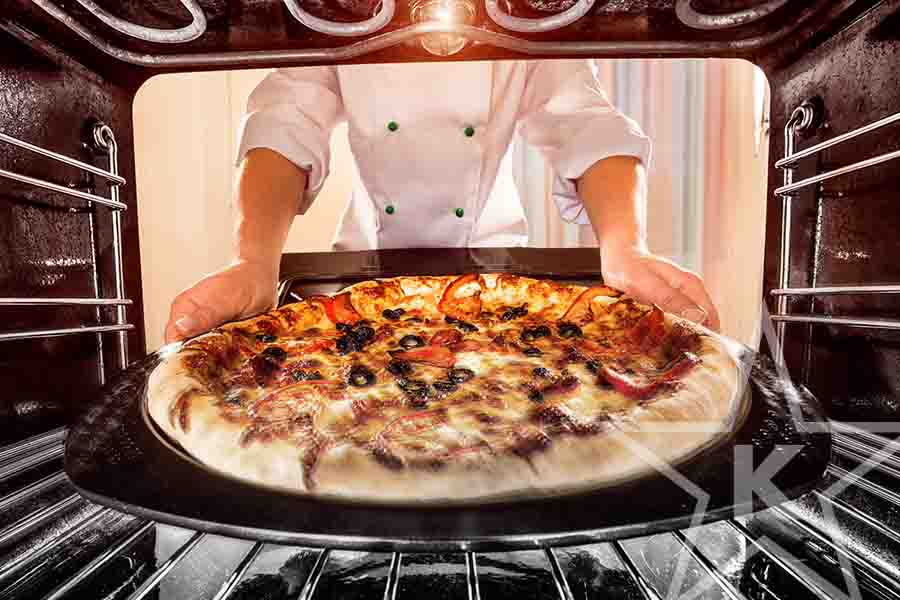
Oven Kashrus 101: Using the Same Oven for Meat, Dairy, Fish and Pareve
Spring 2016
If your kitchen is equipped with four ovens – for meat, dairy, pareve and fish – you don’t need to read this article. However, if you do not have such a luxury, you will find various halachic details enumerated below quite relevant.
There are numerous factors involved in an oven “going back and forth” between meat and dairy or using an oven for fish or pareve.1 They include the following:
The oven: Is it clean? Was it kashered? When was it last used?
The food: Is it liquid? Is it covered? When was it prepared?
Does the question arise to do the action l’chatchila (I can do this) or is it only okay bedi’eved (it already happened)?
NOTE: The halachos addressed are based on the psak of HaRav Moshe Heinemann shlit”a, STAR-K Rabbinic Administrator.2 This article addresses issues only involving regular gas or electric ovens. It does note address […]
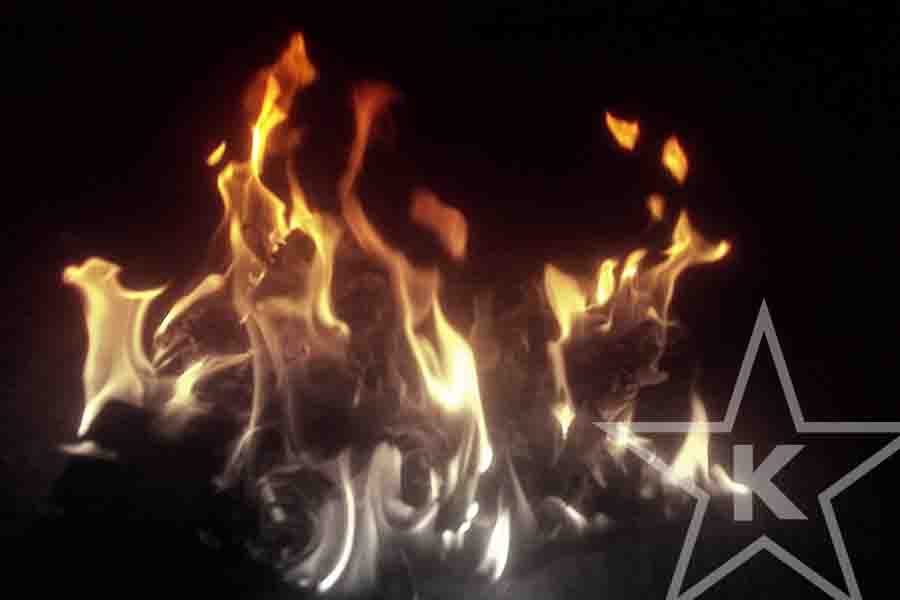
Kashering Liver
Published Spring 2016
Before one is permitted to indulge in kosher Jewish delicacies such as chopped liver, liver steaks and onions, or sauteed chicken livers, raw liver must undergo various processes before the liver is deemed fit for kosher use. First, as with all kosher meat, the liver must come from a kosher species of animal or fowl that has been schechted, slaughtered, in the proper manner prescribed by the Torah. If it is an animal liver, all the fat must be meticulously removed. Furthermore, the Torah forbids eating the blood of an animal or bird. Therefore, it is necessary to extract the blood from the kosher slaughtered meat or liver.
How is the blood removed? With meat, this process is commonly known as kashering and is accomplished by soaking the meat in water, salting it, and then rewashing it. With liver, this method of extraction is insufficient. Since liver contains such a large concentration of […]
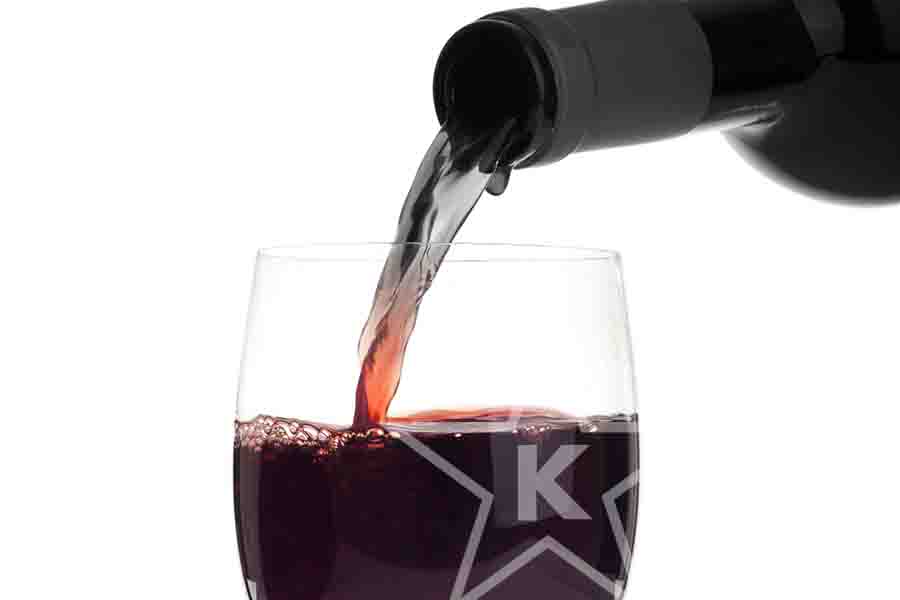
When to Recite Hatov V’Hameitiv Over Wine
Kashrus Kurrents Spring 2016
Q: When is the brocha of Hatov v’Hameitiv recited over wine?
A: Before drinking a cup of wine, one recites the brocha of Borei Pri Hagofen. Under certain circumstances, if a different wine is subsequently drunk one recites an additional blessing – the brocha of Hatov Vehameitiv.1 The brocha gives thanks to Hashem for blessing the person with a richness of wine. The Hebrew text of the brocha is 2ברוך אתה ה’ אלקינו מלך העולם הטוב והמטיב
This brocha is recited only if a number of conditions are met:
If the second wine is of lesser quality than the first wine, Hatov Vehameitiv is not recited.3 There is one exception to this rule. If the first wine is red and the second one is white (but not the other way around), Hatov Vehameitiv is recited even if the second wine is known to be of slightly inferior quality. This […]

A Crystal-Clear Halachic Approach to Glass
Published Spring 2016
Glass is one of nature’s most versatile products created from some of nature’s most prevalent raw materials: sand, soda and lime. In the food industry, glass applications are extremely diverse. Glass can be made into delicate drinking glasses, as well as tough heat resistant ceramic cooktops tops withstanding temperatures over 1000°F.
How is glass made? Basically, the raw ingredients are heated and melted in a large furnace. The molten glass is shaped, blown, or pressed into its desired shape. The finished product is then annealed in an annealing oven and tempered to give the newly formed glass strength and durability.
Although glass can be made to be stronger and less porous than steel, the halachic status of glass remains enigmatic. On the one hand, Chazal recognized the fact that glass is tough, resistant and non-porous. On the other hand, glass raw materials are the same as earthenware which is very porous, extremely […]

Pesach Webinar 2016
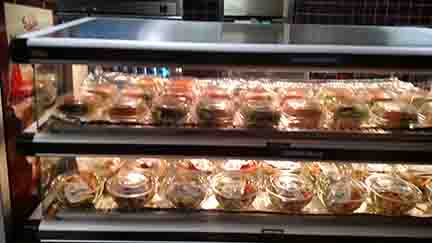
What it Takes to Serve Kosher to 18,700 AIPAC Conference Attendees
The Walter E. Washington Convention Center, famous for hosting the official inaugural balls for Presidents George W. Bush and Barack Obama, earned its newest claim to fame, March 20-22, when it hosted the largest Kosher event ever—the 2016 AIPAC Conference. Actually, the 2,300,000-square-foot facility in Washington, D.C., was not large enough for the event which was addressed by Vice President Joe Biden, Democratic presidential hopeful Hillary Clinton and Republican presidential hopefuls Senator Ted Cruz, Governor John Kasich, and Donald Trump. The 1,020,000 square foot field Verizon Center and the 105,000 square foot Marriott Marquis, were utilized, as well.
Here are just some of the stats so you can try to fathom what it took for the The Vaad Harabanim of Greater Washington (the “Capitol K”) to ensure the event was kosher: 18,700 attendees; 55 mashgichim; 10 kitchens; 4 caterers; 12,000 lamb chops; 5 actual days of catering; 14 carriers of Kosher […]
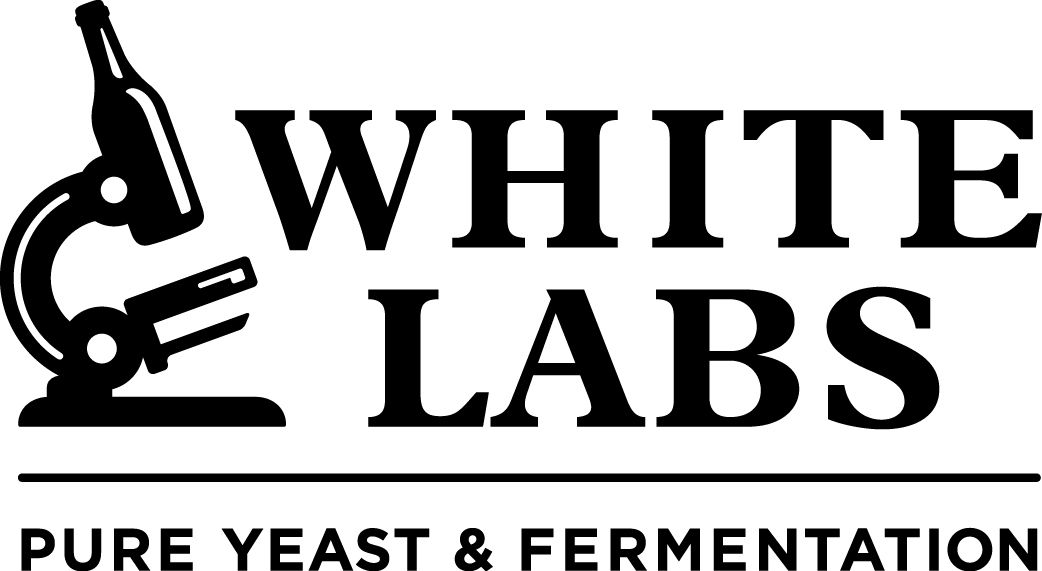
White Labs Achieves Kosher Certification for United States Produced House Yeast Strains and Enzymes
SAN DIEGO (April 5, 2016) – White Labs , the premier pure yeast and fermentation lab, is proud to announce that house yeast strains and enzymes produced in the company’s San Diego and Davis, Calif. facilities have been certified kosher by STAR-K. The official kosher certification logo, a star with a “K” inside, may now be seen on the back of all U.S. produced product packaging.
The STAR-K Kosher Certification is a guarantee that White Labs house yeast strains and enzyme ingredients meet all kosher requirements. Those requirements include the Jewish religion’s laws that determine which foods are acceptable and conform to the Jewish Code. To become certified, White Labs worked with STAR-K representatives to evaluate the company’s ingredients and products. As a condition of the certification, STAR-K audits the production facilities regularly throughout the year to ensure kosher compliance.
“Having our house yeast strains and enzymes kosher certified is an investment in our company that we hope our customers will appreciate,” said […]
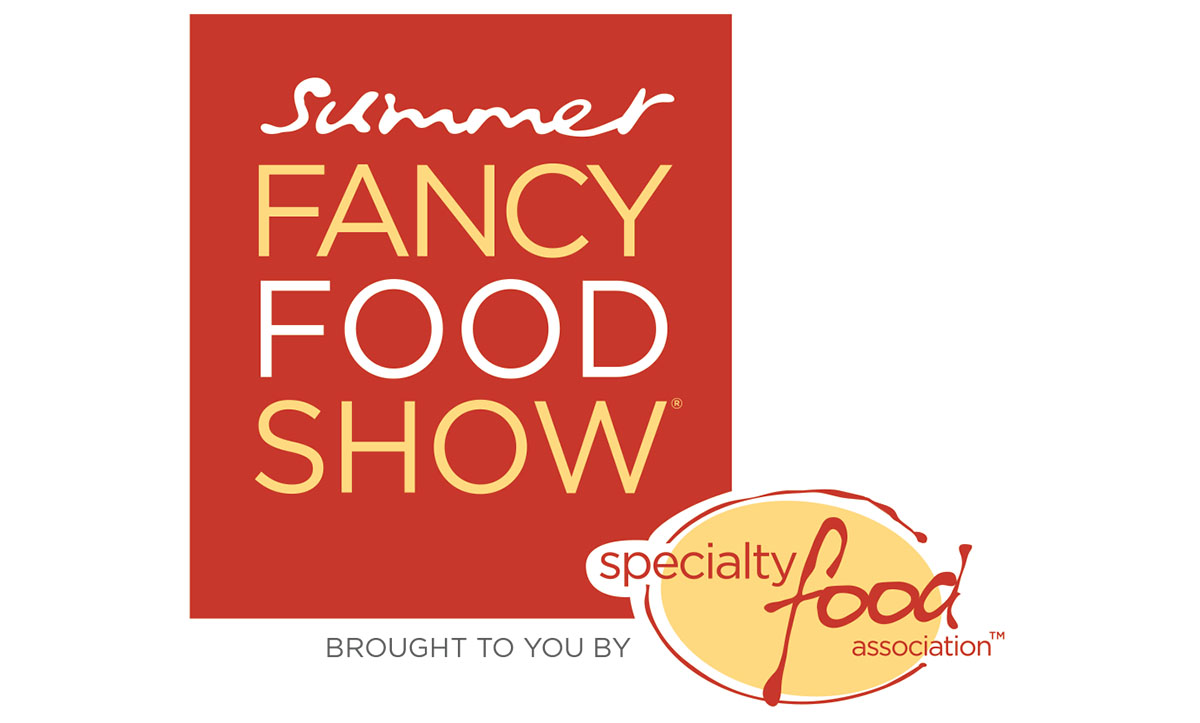
STAR-K to attend Summer Fancy Food Show
The Summer Fancy Food Show is scheduled for June 26-28, 2016 at the Jacob Javits Center in New York.
The STAR-K booth is #4428.
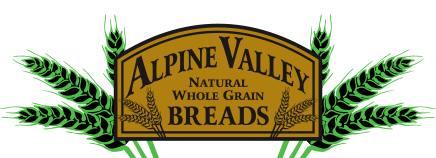
ALPINE VALLEY BREADS
ALPINE VALLEY BREADS NOW CERTIFIED PAS YISROEL
STAR-K is happy to announce that ALL Alpine Valley Bread products baked after 3/16/2016 are certified pas yisroel. Products with the number Q076 or higher on the plastic bag fastener were baked after 3/16/2016
Alpine Valley Bread is available at Costco and other major retailers nationwide

STAR-K Speakers Bureau Takes Kashrus on the Road, Near and Far
On January 28, STAR-K Kashrus Administrator Rabbi Sholom Tendler addressed the Shomrei Emunah Night Kollel, in Baltimore, about the practical halachos related to cholov Yisroel and its differing common practices in the field of kashrus. A PowerPoint production detailed STAR-K’s management of cholov Yisroel hashgacha at Kreider Farms.
“Rabbi Tendler’s presentation was the perfect complement for the night kollel’s study of the sugya of cholov Yisroel,” remarked Rabbi Shmuel Iser, Rosh Kollel. “His clear exposition of the halachos and valuable and in-depth knowledge of issues in the real life field of cholov Yisroel hashgachah were greatly appreciated by the fellows of the night kollel. It is always a wonderful thing when you can take a sugya you are learning and translate it into the real world.”
Rabbi Tendler was also invited to Detroit, on February 10, to present the latest developments in the world of kashrus and bug infestation, including hands-on cleaning […]
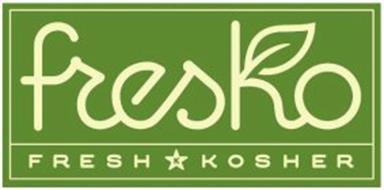
STAR-K Kosher Certified Food Options Take Off at JFK, LaGuardia and Newark Airports
February 2016 | Updated September 2024
Catching a red-eye flight back to JFK after a business meeting in L.A.? Landing in Newark at 5:50 a.m., after a 12-1/2 hour flight from visiting the grandkids in Israel? Leaving for LaGuardia too early to eat breakfast before going on that long-awaited Saint Martin Island vacation? Have no fear, Fresko Green Label is here. No longer do you have to subsist on pretzels and candy marked with a reliable kosher symbol.
The estimated 1.5 million kosher travelers who fly domestically and internationally from JFK, LaGuardia, and Newark airports annually can now avail themselves of a large variety of kosher prepared food options packaged under the Fresko and Yummy Sandwich labels under STAR-K Kosher supervision.
A sampling of the STAR-K certified Fresko/Yummy Sandwich menu includes: grilled chicken salad, southern honey BBQ chicken wrap, fresh roasted turkey sandwich, Cajun turkey sandwich, grilled chicken shawarma wrap, herb grilled chicken sandwich, […]
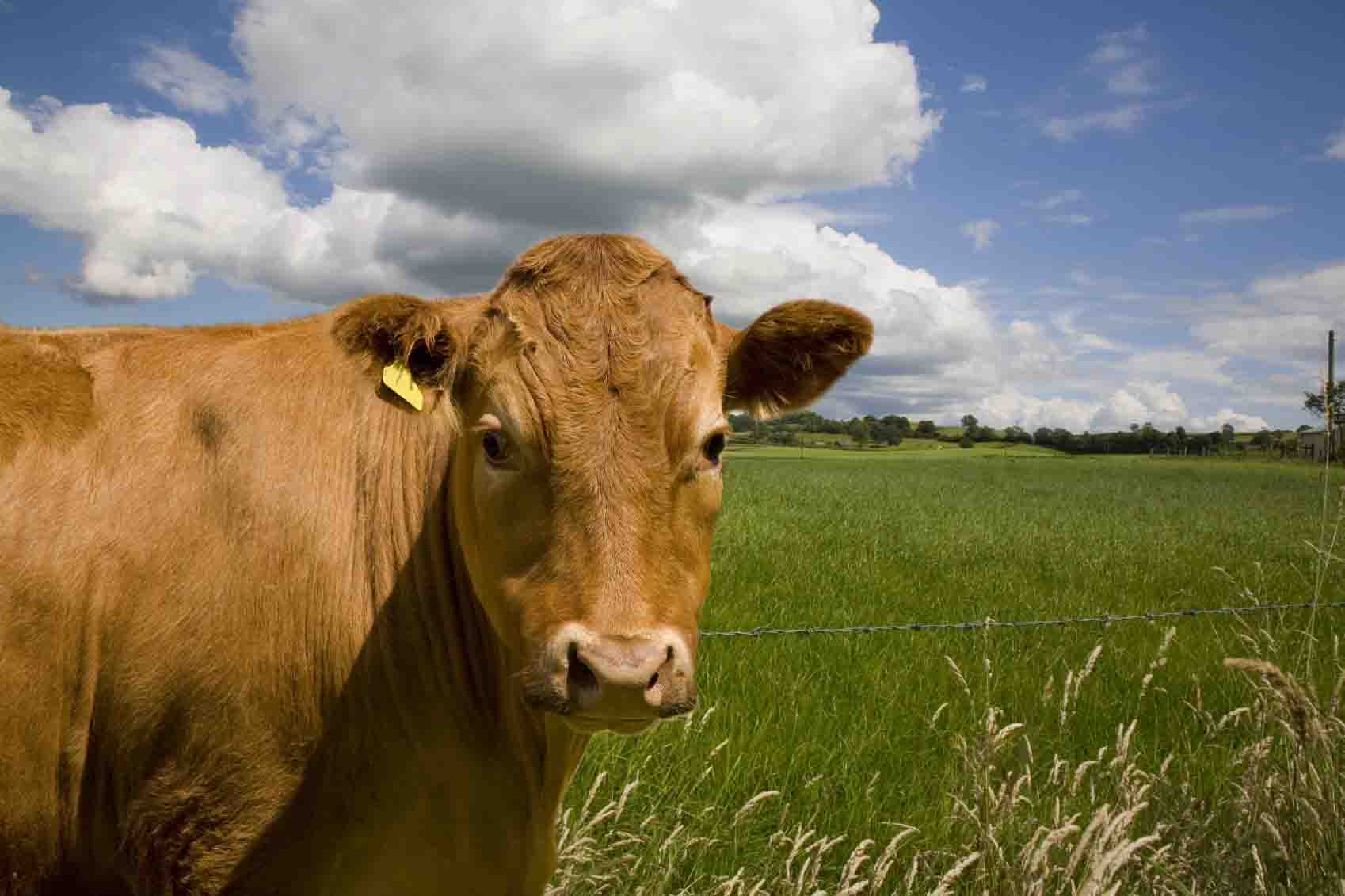
STAR-K Meat Team: Humane Standards Accreditation
Published Winter 2016
While the act of shechitah itself is an exquisitely humane form of animal slaughter, the manner in which an animal is handled prior to reaching the shochet should also conform with the Torah’s sensitivity for tza’ar ba’alei chaim (the prohibition against causing unnecessary pain and harm to creatures). Our mission to certify meat products of the highest quality was recently enhanced when two prominent members of our meat team, Rabbi Zvi Holland and Rabbi Tzvi Shaul Goldberg, traveled to Iowa in order to take part in an accredited certification program through PAACO (Professional Animal Auditor Certification Organization). Instructors included world renowned experts in the field of animal welfare such as Dr. Temple Grandin, professor of animal science at Colorado State University and consultant to the livestock industry. She is considered a leading authority on animal welfare.
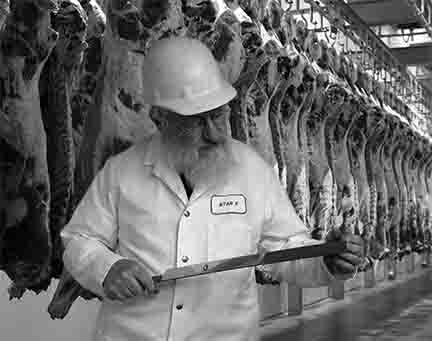
Consumer Confidence
Published Winter 2016
Often when consumers purchase meat from a butcher shop, or eat at a restaurant or catered event, they are unaware of the original hashgacha that certified the meat as kosher at its point of origin. They place their confidence in the retail establishment’s kosher certification to determine the acceptability of the received product.
Some shoppers have a preference for meat produced by specific companies, trusting that this producer always conforms to a single set of kosher standards. However, unbeknownst to the consumer the company may actually produce their products at different locations, supervised by various hashgochos that do not all share the same standards. In January 2016, Congress repealed country-of-origin labeling laws for packaged meat products, making it more difficult for consumers to track where their meat comes from.
STAR-K certified meat/poultry companies and retail establishments consistently satisfy the requirements set by HaRav Moshe Heinemann, shlit”a, regardless of […]

Checklist for Approving a Shechitah Facility
Published Winter 2016
All the knives of the shochtim must be checked to ensure that they are sharp and without even the slightest ‘pegima’. This must be done before and after the shechitah.
There must be a sink with running water near the place of shechitah for the shochtim to sharpen their knives.
Animals may not be prodded to the shechitah box with a plug-in electric prod.
The head restraint in the box which holds the animal during shechitah must be calibrated so that the animal’s head cannot move during shechitah, but not so tightly that it affects the animal’s breathing.
A system must be in place, to track any animal that becomes a nevaila.
Animals may not be stunned at any time after the shechitah.
No hot water may be used on the animals anywhere in the slaughter house.
No electric current may be applied to the animal at any point, including when used to tenderize the […]
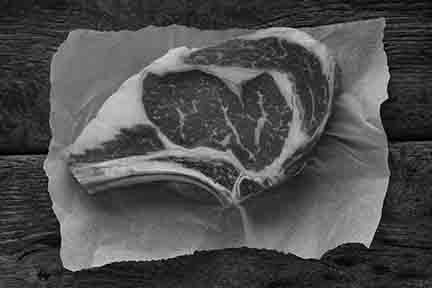
Making the Cut: Assuring that Glatt Really Means Kosher
Winter 2016
It is written in our Torah, “Ubosor basodeh treifa lo socheilu” (Shmos 22:30), it is forbidden to eat treif meat. While the expression “treif” (non-kosher) has become the universal connotation for food that is not kosher, in truth, the word treif specifically refers to an animal whose flesh was torn or ripped. Technically speaking, if a kosher species of animal or fowl was attacked by a predator, the meat of the victim may be deemed treif. However, the meat of an animal improperly kosher slaughtered is not treifah, it is called a neveila. Technically, meat of a non-kosher animal species is the meat of a temeiah. Yet, the term “treif” has found its way through the portals of the slaughterhouse, as well as the aisles of the non-kosher meat section of the supermarkets. No matter what the name, all of these categories of meat are forbidden to be eaten.
[...] Read More

Kosher Meat in the Marketplace
Published Winter 2016
Keeping kosher does not preclude being a locavore,[1] but it definitely presents substantial challenges, particularly for omnivores. Barely a handful of communities in the world today still host facilities where kosher meat is processed from slaughter to salting, and sold from steak to salami, all within close proximity to a kosher consumer base. Like most items in the modern marketplace, it’s much more common to find beef and poultry products traveling vast distances from slaughterhouse to processor, and from distributor to retailer, before reaching the dinner table.
The Old Way
This very untraditional configuration has uprooted the once prominent communal fixtures of shochet and bodek (one who checks for abnormalities that render meat treifah). It’s also a complete departure from an extreme version of locavorism that was practiced in many pre-war European kehilos, which legislated bans on ‘sh’chutay chutz’, not allowing meat slaughtered in a different city […]

Approved Without A Hechsher
Listed below are products that do not require kosher certification provided (a) they do not have additives, and (b) (if food items) are not a product of Israel. Food items from Israel need reliable certification. Please review this list regularly for any updates as the information may change.
NOTE: This list is NOT for Passover use
Aluminum Foil
Applesauce – Plain Only (even with high fructose corn syrup and vitamins)
Baking Powder
Baking Soda
Beer
domestic, unflavored
Bran
unprocessed
Buckwheat
raw
Carob Powder
[...] Read More

Tu B’shvat Insect Checking Fruit List
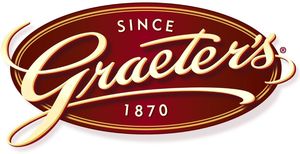
Cleveland: Graeter’s coming to Crocker Park Next Summer
Graeter’s first Cleveland location will offer ice cream, sundaes, milkshakes and old-fashioned sodas, all with a star-D kosher rating.
Graeter’s, which opened in Cincinnati in 1870, plans to open an ice cream parlor in Crocker Park in Westlake next summer.
“Our first Cleveland scoop shop will allow us to share our love for authentic ice cream with the community while staying true to our vision of quality and integrity,” Richard Graeter, fourth-generation owner of Graeter’s Ice Cream, said in a news release.
The 2,000-square-foot store will look like an old-fashioned ice cream parlor, accommodating up to 50, according to the release.
“It’s still in the relatively early stages,” Chip Graeter, chief of retail operations for Graeter’, said about the Westlake location. “We’re still setting up all the details with the lease and making sure all of our T’s are crossed and our I’s are […]

COMMENT CHOISIR UNE CERTIFICATION KASHER
Choisir le bon organisme
Pour commencer…
FAQ
Termes de négociation
Tarifs
Choisir le bon organisme
Comment trouver la certification Kasher la plus adaptée aux besoins spécifiques de votre entreprise ?
Si les besoins de votre société dans le domaine du Kasher ne peuvent être satisfaits par une équipe rabbinique locale, trouver et comparer les points forts des différentes certifications pourra vite devenir pour le moins déconcertant. Les organismes de certification Kasher ne sont pas tous les mêmes !
Il est très important d’entreprendre cette sélection comme vous choisiriez un avocat, un consultant financier, ou un cadre. Vous devrez faire votre part du travail ! En posant les bonnes questions et en explorant toutes les options disponibles sur le marché du Kasher, vous éviterez à votre entreprise une expérience désagréable et coûteuse.
Pour commencer…
Avant de commencer à vous informer et à peser le pour et contre des différentes agences de certification (cela […]

LE MARCHE DU KASHER
Depuis 25 ans, la demande de produits Kasher est en très forte augmentation. Plus spécifiquement, le marché du Kasher croît à raison de 15% par an depuis plusieurs années.
Le consommateur Kasher
Le marché de clientèle juive
La communauté musulmane
Autres confessions religieuses
Intolérants au lactose
Végétariens
Garantie de qualité
Le consommateur Kasher
Des millions de gens à travers le monde sélectionnent leurs achats alimentaires en recherchant le symbole Kasher pour être certains que leurs exigences sont respectées. D’après des études de marché récentes, l’attrait des aliments Kasher ne se limite pas à un groupe ethnique donné. Les consommateurs d’aliments Kasher peuvent être Juifs, Musulmans, membres d’autres confessions religieuses, végétariens, intolérants au lactose, ou simplement des gens qui comprennent que “Kasher, c’est mieux”.
Le marché de clientèle juive
Les consommateurs juifs forment environ 45% du marché Kasher. Selon l’entreprise Integrated Marketing Communications, il y aurait 2,5 millions de Juifs consommateurs de […]

コーシャ認証の選び方
適切な認証機関を選ぶ
まず始めに…
よくあるご質問
交渉条件
手数料
適切な認証機関を選ぶ
あなたの会社特有のニーズに応えてくれる、適切なコーシャ認証を見つけるにはどうしたらよいでしょう?
コーシャ認証に関して必要なことを地元のラビ評議会が計らってくれるビジネス環境にいらっしゃるのでなければ、さまざまな認証の長所を比較しようとして、きっと当惑なさることでしょう。コーシャ認証団体のすべてが同じであるわけではないのです!
このプロセスでは、弁護士・財務顧問・事業の要となる社員などを選ぶ際に用いるのと同じようなやり方で取り組むことが非常に大切です。つまり、手をぬかないということです! 適切な質問をし、コーシャ市場に存在するすべてのオプションを検討することで、のちのち不愉快な思いをしたり、余計な費用がかかったりといった事態を避けることができるかもしれません。
まず始めに…
さまざまな認証団体と面接したり、その長所・短所を検討したりし始める前に(すでに認証を受けており、変更を考えている場合も同様です)知っておかなければならないのは、信頼がおける団体は、あなたの会社に対する信用だけに基づいて製品を認証することはない、ということです。
その他の多くのことに加え、コーシャ認証機関は以下のことを要求します:
工場視察
製法・設備の徹底的な見直し
原材料の出自に関する詳細
製品のコーシャ認証に関連した書類等を検討する許可
コーシャ認証機関が、「信用」に基づいて認証を発行してくれると期待するのは、現実的ではありません。さらに、もしラビや個々の団体から、書面によるやりとりだけに基づいて認証を発行すると言われたら、そのような認証が広く受け入れられることはないと、ただちに疑わなければなりません。他の信頼がおける団体は、そのような認証の有効性をおそらく認めないでしょう。このため、認証プロセスを最初からやり直さなければならなくなる可能性があります。それが不愉快な経験であることは、言うまでもありません。
よくあるご質問
ある認証がどれだけ広く受け入れられているかを判断するには、どうしたらいいでしょうか。
まず、あなたの得意先や卸売り業者、または類似品を販売している会社に、特定の認書に関してどんな経験があるか、問い合わせてみることをおすすめします。
また、あなたの製品を販売している、または将来そうしたいと考えているさまざまな都市の、地元のラビ団体と連絡をとりましょう。その都市でカシュルート(食物の清浄規定)を監督するラビが、自分の会衆の間でどの認証がもっとも人気があるかを教えてくれるでしょう。どのコーシャ認証団体も、それらの都市でカシュルートを監督しているラビの名前・電話番号を教えてくれます。
顧客の好みが地域毎に異なり得ることは、すでにお気づきのことでしょう。また、アメリカやヨーロッパの都市に住むコーシャ消費者は、別の地域のラビ団体の認証を受け入れないかもしれません。そのような場合は、全国的または国際的な影響力があり、そのマークなら世界的に受け入れられると思われる認証団体を選ぶことが大切です。世界的な評価を得ている団体ですら、100%受け入れられるわけではありません。自分たちのラビによる認証を主張する小グループが、常に存在するためです。もうひとつ考えなければならないことは、その認証が、日頃からコーシャ認定商品を求めているイスラム教徒やセブンスデー・アドベンチスト、またはベジタリアンのグループらに受け入れられるかどうか、という点です。
その認証団体から、どのようなサービスを期待できますか。
認証の受け入れ度に加え、考慮中の認証団体が、どのようなレベルのサービスを提供してくれるかについても注意しなければなりません。
その団体は、あなたのニーズに対し、どれくらい速やかに応えてくれるでしょうか。あなたが調味料会社の社長であり、あなたの得意先がコーシャ認定の調味料を至急必要としているとします。その認証団体は、決められた期間内にサービスを提供するのに十分で適切なスタッフを抱えているでしょうか。コーシャ認定の原材料を手に入れるのがむずかしい状況にあるとき、その原材料の適切な供給先を見つける手助けをしてくれるだけのリソースを、その団体は持っているでしょうか。電話で質問したり、承認を受けるため新しい原材料を提出したりするとき、妥当な時間内に答えをもらえているでしょうか。
遠方から仕入れる原材料が認証を必要とする場合、その団体は、手軽に製造施設を検査できるカシュルート専門家を世界中に抱えているでしょうか。それとも、その遠方の施設に自分たちのスタッフを送る必要があるため、コストがかさみ、製造が遅れるという事態を引き起こしているでしょうか。
あなたの得意先が、ある原材料のコーシャ認証ステイタスに関して問題ありとする場合、認証団体自ら、その製品を認証するラビと連絡をとり、誤解を解消したり、あなたの製品が得意先の要求するコーシャの必要条件すべてにかなうよう取り計らってくれたりするでしょうか。
その団体は、マーケティングに関する助言も提供する用意があるでしょうか。あなたの製品をコーシャ消費者に紹介する手助けをしてくれるでしょうか。または、コーシャ市場に精通した卸売り業者の名前を教えてくれるでしょうか。
その認証団体は、どんなスキルを提供してくれますか。
認証団体が、特定の業界についてどれだけのスキルと知識を持っているかを調べることが大切です。例えば、あなたがクエン酸やアミノ酸などの化学製品を製造しているならば、最初に工場を視察するラビが工業用発酵について精通しているかどうか、確認しなければなりません。そうでなければ、知識不足のせいで、スムーズな認証プロセスに支障をきたすこととなるでしょう。
バター・チーズ製造所や飲料製造工場、パン工場、缶詰工場などに認証を発行するラビは、これらの各業界で一般的に使われているテクノロジーとシステムについて、基本的に理解していることが必要です。ラビの中には、認証する業界について経験をもたないため、最終製品のコーシャステイタスに影響しないような新しい工程や原材料の使用を、誤って禁止する人たちがいます。
その認証団体が、認定する企業へ提供するサービスについて、本当に熱心に取り組んでいるかを判断するためには、このような質問をしなければなりません。その特定の団体から認証を取得したすべての会社の詳細リストを渡してくれるよう、ラビに頼みましょう。そしてそのいくつかに電話して、その団体から受けているサービスのレベルに他の会社が満足しているかどうかを判断しましょう。
交渉条件
コーシャ認証条件の交渉中はそれほど明白ではないかもしれませんが、あとからたいへん深刻な問題となり得る点は、原材料の供給者がコーシャ認証を取得する必要があるかどうかを事前に知っておくということです。もしその供給者がすでに認証を取得しているなら、その認証は信頼に足るものでしょうか。ほとんどの場合、信頼がおける団体は、他の信頼がおける団体の発行した認証を受け入れますが、この原則には多数の例外があります。あなたの供給業者のあるものが問題となる場合に備えておかなければなりません。あなたには、その認証団体が100%誠実であり、もしあなたの供給業者の一部を否定することがあれば、筋の通った説明を提供してくれるものと期待する権利があります。もしその団体が納得いく説明を提供できなければ、どこか別の団体を探し始める必要があるというサインかもしれません。
手数料
コーシャ管理に対して請求される手数料に関しては、かなりのばらつきが見られます。これは名のとおった、大手の団体間でも同様です。特定の料金構造について理解することは、必要な時間と手間をかけるだけの価値があります。
さまざまな団体から見積書をとることをおすすめします。年間手数料・旅費の返済・場合によっては日当・初回視察手数料などについて、あらかじめ尋ねておきましょう。STAR-Kでは、販売量に基づいたコーシャ認証の手数料請求に強く反対しています。そのような場合、認証団体は依頼主のパートナーとなり、「自己認証」となってしまうため、正当とは認めがたい、というのが私たちの意見です。
見積もり額が妥当とは思えない場合は、あなたの交渉力を発揮してみましょう。認証団体は、一定の条件下において、通常料金をある期間割り引く用意があるものです。コーシャ市場を試してみてから認証を維持するつもりがあるか決断するオプションを提供してくれる可能性もあります。
最後に、必要な準備をすることの重要性を繰り返し強調したいと思います。コーシャ認証団体と契約を結ぶ前に、その団体の長所と短所の両方を理解しておくことが大切です。認証契約書にサインする時、コーシャ家族の一員となりつつあると感じ、その団体があなたのために働いてくれると感じるなら、あなたは正しい選択をしたということを意味します。

コーシャ市場
コーシャ認証を取得した製品に対する需要は、過去25年間に急激に増加しました。もっと具体的に言えば、コーシャ市場はこの期間に年間15%の割合で成長しています。
コーシャ消費者
ユダヤ人市場
イスラム教コミュニティー
その他の宗教団体
乳糖不耐症患者
ベジタリアン
品質保証
コーシャ消費者
世界中で何百万人もの人々が食事内容を制限しており、確実に自分たちの好みにかなうよう、コーシャマークがついた製品を求めています。市場調査研究によると、コーシャ食品に対する興味は、特定の民族集団の関心にとどまりません。コーシャ食品の消費者は、ユダヤ人・イスラム教徒・その他の宗教団体の信者・ベジタリアン・乳糖不耐症患者をはじめ、「コーシャの方がすぐれている」と理解している人たちを含みます。
ユダヤ人市場
ユダヤ人消費者は、コーシャ市場の45%近くを占めています。統合マーケティング・コミュニケーションズ部門の発表によると、およそ250万人のユダヤ人がコーシャ食品を消費しているといいます。
イスラム教コミュニティー
世界中の何百万人ものイスラム教徒が、コーシャの規定に似た食生活に従っています。コーシャ認定食品は、ハラールの規定にかなっているため、イスラム教徒の間でも人気があります。イスラム教コミュニティーを対象とした多数の調査が、コーシャマークに対する関心の高さを示しています。実際、コーシャ認証を受けた食品が同コミュニティーに採り入れられた結果、現在コーシャ市場の20%近くをイスラム教徒が占めるまでになっています。
その他の宗教団体
セブンスデー・アドベンチスト教会をはじめ、キリスト教の教派の中には、ユダヤ教と同じような食事規定を守っているところがあります。例えば、セブンスデー・アドベンチスト教会では、豚肉が許されていません。食品につけられたコーシャマークは、これらの人々の食事に対 する懸念が解消されたこと、その食品が許されていることを保証します。
乳糖不耐症患者
何百万人もの人々が、乳糖不耐症を患っています。また、乳製品に対してアレルギーがある人たちは、乳を使った原材料をほんの少量摂取しただけで、死の危険にさらされる可能性があります。コーシャ規定では、肉と乳を完全に分けることが要求されます。ですから、乳製品(dairy product)を含む食品は、コーシャマークと共にDの文字が表記されていなければなりません。Dの文字がない場合、またはパラベ(Pareve:ヘブライ語で「中立の」を意味する)の指定がある場合は、その食品が乳製品を含まないことを保証しています。乳糖不耐症や乳アレルギーを持つ消費者がコーシャマークを探すのは、その食品が乳を使った原材料とどんな接触も持たなかったことを保証しているからです。
ベジタリアン
ベジタリアンは、さまざまな理由で、肉・鶏肉・魚を食生活から排除します。STAR-Kマーク、またはパラベ(Pareve)の指定を伴うSTAR-Kマークは、その食品が肉・乳・鶏肉を使ったどんな原材料をも含んでおらず、ベジタリアンによる利用に適していることを保証します。
品質保証
ラベルに印刷されたコーシャマークは、その食品が宗教的基準にかなっていることを示しているだけではありません。それは高品質の印であるとともに、グッドハウスキーピング認定証と同様、品質の保証でもあるとみなされています。実際、2001年に統合マーケティング・コミュニケーションズ部門が行った調査によると、コーシャの方がすぐれていると確信している消費者は、市場の25%を占めています。上記のような食事規定を気にしない消費者でさえ、安心を上乗せしてくれるものとして、食品を購入する際にコーシャマークを探しているのです。
消費者が味と見かけで食品を購入していた時代は、とっくに過ぎ去りました。昨今の消費者は、食品を吟味する際に、原材料と栄養成分とをチェックします。彼らは自分たちが食ベる物についてたいへん心配しており、製造工程や使われている原材料を問題にします。厳密な管理と細心の気配りをあらわしているコーシャマークは、さまざまな期待を持つ最大数の消費者に対し、最高の品質を保証します。
コーシャ市場は、食品業界に数多くの機会を提供します。STAR-Kでは、業界に対し、コーシャマークをつけた食品がどのように販売・市場戦略の一部となり得るか、検討するよう推奨しております。申請用紙をお求めになり、お気軽に私たちのフィージビリティ・スタディ(無料・申請義務なし)を最大限にご活用ください。STAR-Kのスタッフが、喜んでお手伝いいたします。
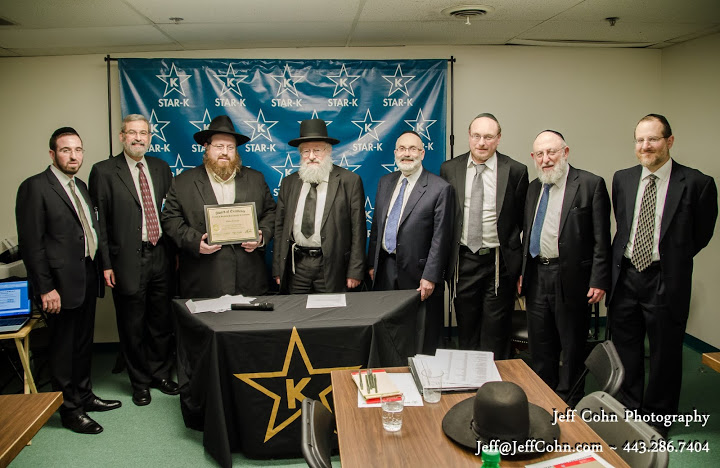
STAR-K Kosher Certification Hosts Winter Mashgichim Review Seminar
http://matzav.com/star-k-kosher-certification-hosts-winter-mashgichim-review-seminar/
http://baltimorejewishlife.com/news/news-detail.php?SECTION_ID=1&ARTICLE_ID=68533
On December 24, STAR-K Kosher Certification held its annual Winter Mashgichim Review Seminar at its Baltimore offices. STAR-K Kashrus Administrators Rabbis Mayer Kurcfeld and Sholom Tendler conducted the day-long sessions with the goal of bringing together food service mashgichim to inform, review, and reinforce STAR-K food service policies and procedures. Attendees came from New York, New Jersey, Pennsylvania, D.C., and the Baltimore area.
“Everybody at the STAR-K knows that the mashgichim out in the field are the eyes and ears of our organization and even though STAR-K is a large kashrus organization and gives hashgachos all over the world, food service—which is a relatively small part of STAR-K’s activities—is probably the most important thing that we do,” noted STAR-K president Avrom Pollak, in his opening welcome statement. “The most important part of the program has always been the give and take sessions between the mashgichim themselves, and the […]
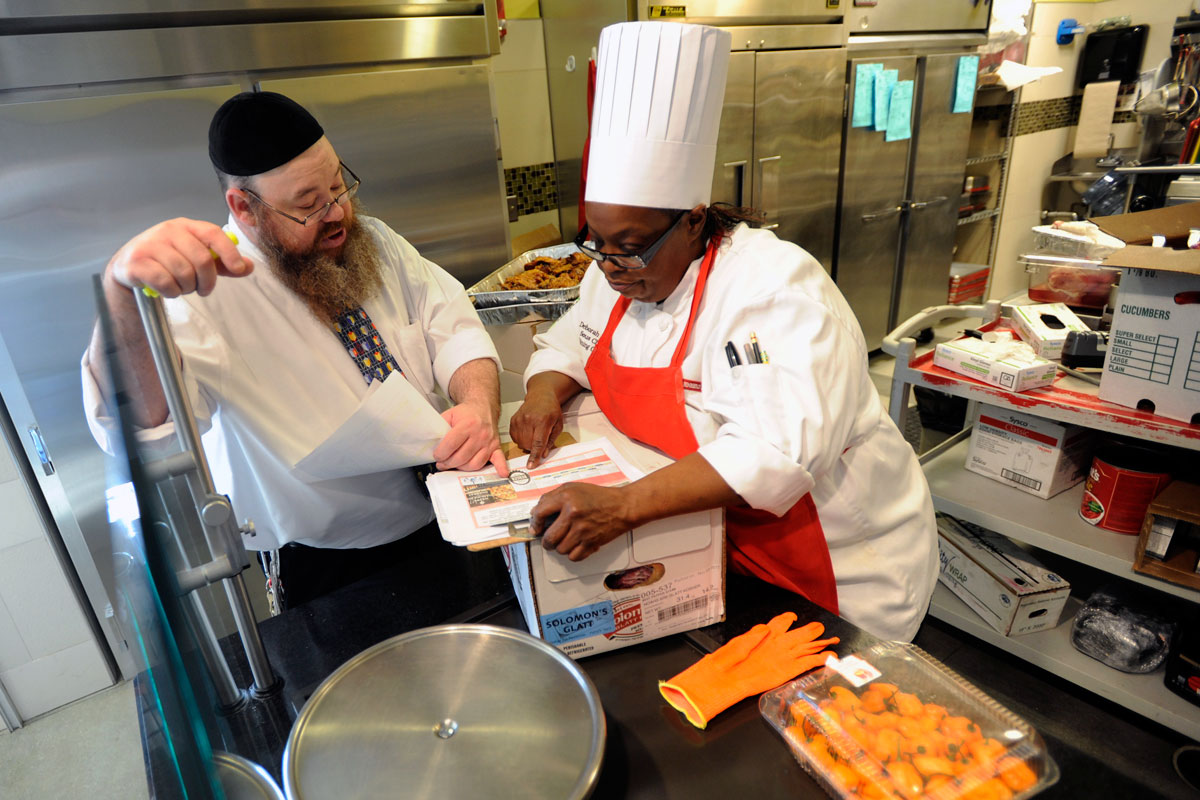
The Family that Makes Kosher Together
http://mobile.philly.com/news/?wss=/philly/news&id=363787961&
At Muhlenberg College’s dining hall, Jonathan Powers turns on the ovens, makes sure the eggs contain no blood spots, and inspects the broccoli and cauliflower for forbidden pests.
They are some of his duties as the Allentown college’s mashgiach, a Jew who supervises a food establishment to make sure the dietary laws of his faith are followed.
“We’re here to make sure everything is kosher,” explains Powers, 41, “and that all the food that comes in is kosher.”
The college hired him five years ago when it opened two kosher food stations in its new dining hall in an effort to better serve Jewish students.
For Powers, the work is a family tradition; his mother, Louise, 66, is a kosher supervisor at Dickinson College in Carlisle, Pa., and his father, Mark, 66, holds the job at Franklin and Marshall College in Lancaster.
Nearly a third of Muhlenberg’s 2,200 students are Jewish, among the highest percentages […]

Il Mercato Kosher
Nel corso degli ultimi venticinque anni, la domanda di prodotti dotati di una certifcazione Kosher è aumentata drammaticamente. Più precisamente il mercato Kosher è cresciuto ad un tasso annuo del 15% negli ultimi anni.
I Consumatori Kosher
Il Mercato Ebraico
La Comunità Islamica
Altre Confessioni Religiose
Intolleranti al Lattosio
Vegetariani
Garanzia di Qualità
I Consumatori Kosher
Milioni di persone in tutto il mondo limitano il proprio consumo di cibo e rivolgono il loro sguardo al simbolo Kosher per assicurarsi che le loro preferenze vengano soddisfatte. Secondo alcune ricerche di mercato, lattrazione nei confronti del cibo Kosher va ben oltre linteresse di uno specifico gruppo etnico. I consumatori di cibo Kosher comprendono ebrei, musulmani, membri di altre confessioni religiose, vegetariani, persone con intolleranza al lattosio e tutti coloro che comprendono che “Kosher è meglio”.
Il Mercato Ebraico
consumatori ebraici costituiscono quasi il45% del mercato Kosher. La Comunicazione Integrata diImpresa rivela che circa […]

 STAR-D
STAR-D STAR-S
STAR-S